At the start of the year, like clockwork, I feel a sudden impulse to get organized—there’s a desire to streamline everything before the madness of work and life take over once again. Plus, there’s something weirdly satisfying about a Kondo-level closet, a carefully edited coffee table, and starting the week meal prepped. But one space that often gets neglected is the one that’s purely for you: the bedroom. So today, we turn to a master of living intentionally, Shira Gill to not only address the question of how to keep your bedroom organized, but how to elevate the start to every day.
An organization expert, lifestyle blogger, and author (her second book, Organized Living comes out in 2023), Gill transforms the action of getting rid of clutter into an almost meditative act of self-care. Seemingly endless scientific studies have found a correlation between a clean space and productivity (plus: less stress and better sleep). But to the Berkeley, California-based mother, it’s not just about getting rid of stuff, it’s about empowering yourself in your space.
Featured image of Kate Zimmerman Turpin’s Sunday House.

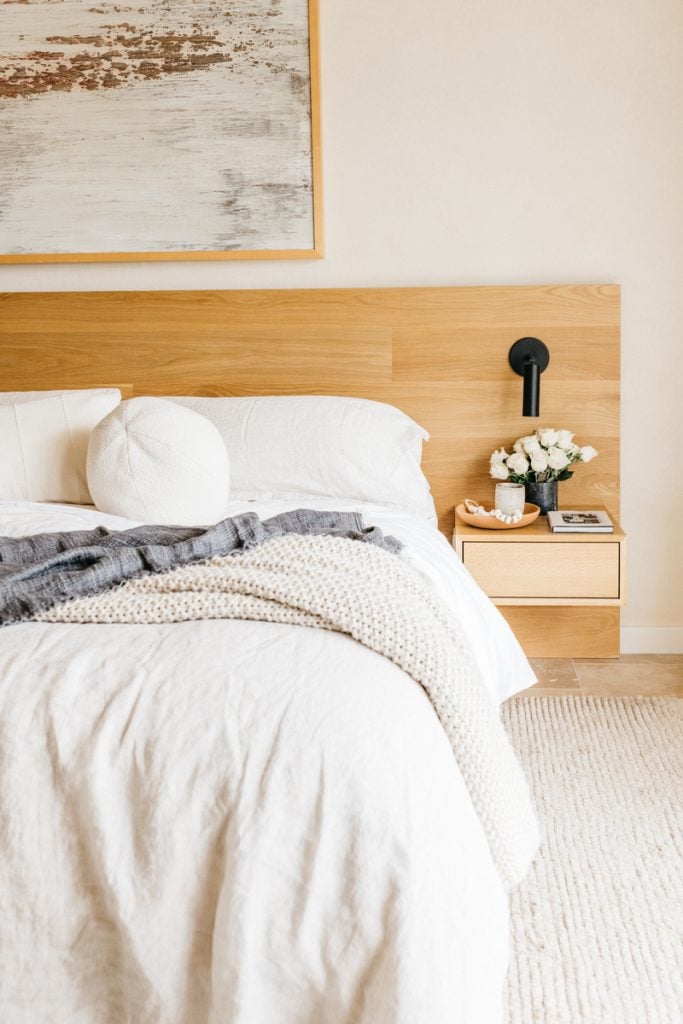
To give your most intimate space the dreamy, mood-lifting atmosphere it deserves, Gill graciously outlines a few easy habit shifts, as well as five things to banish from your bedroom forever (hint: don’t neglect your morning coffee mug). Prepare to wake up in your own personal sanctuary.
This is an exclusive excerpt from Shira Gill’s book, Minimalista: Your Step-by-Step Guide to a Better Home, Wardrobe, and Life. Reprinted from Minimalista by Shira Gill. Copyright 2021 by Shira Gill. Published by Ten Speed Press, an imprint of Random House, a division of Penguin Random House LLC.
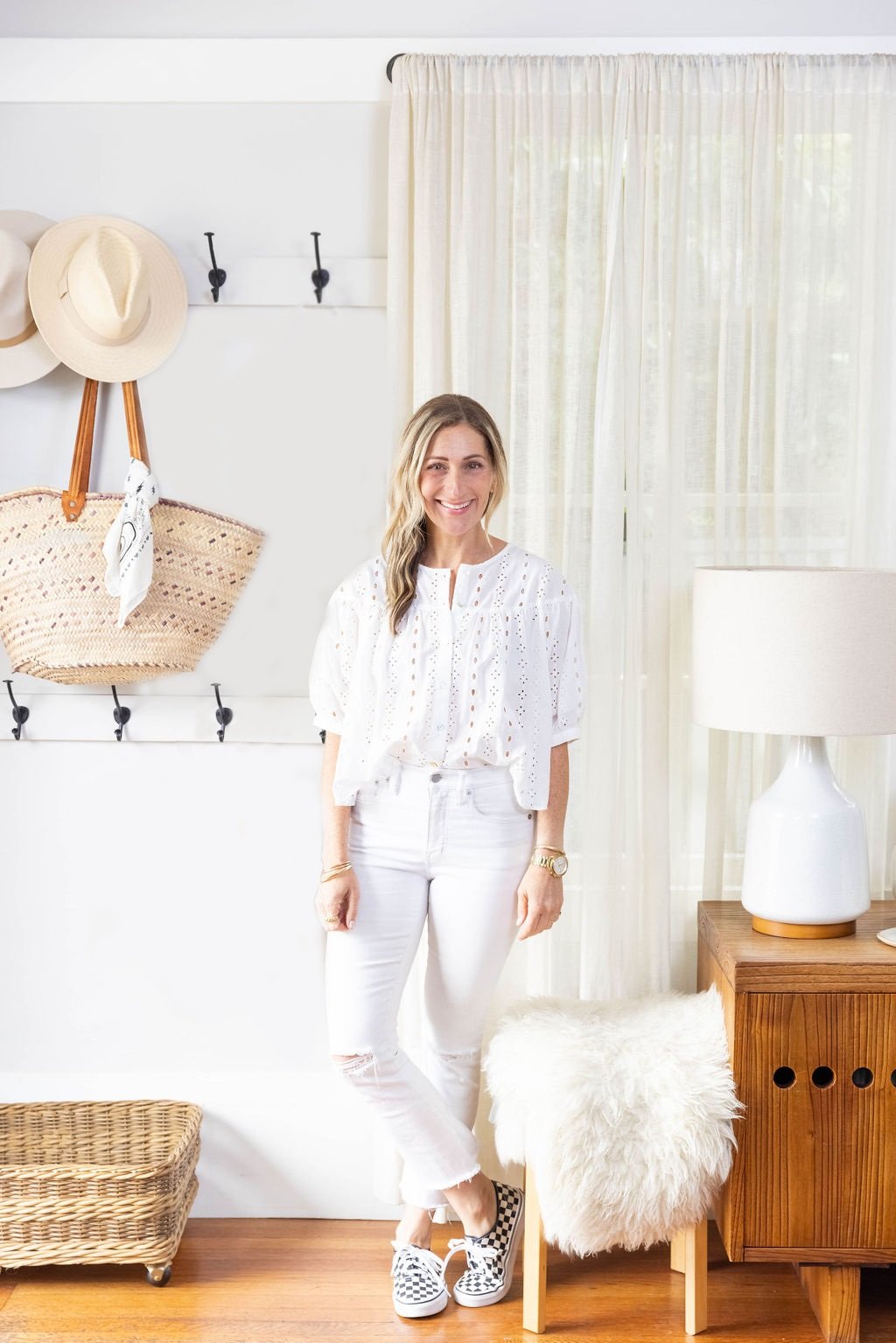
Shira Gill is a globally recognized home-organizing expert, bestselling author, and speaker. Shira is the author of Minimalista and Organized Living, and has been featured in 100+ print and media outlets including Vogue, Dwell, Better Homes & Gardens, House Beautiful, Architectural Digest, Domino, Forbes, Goop, Harper’s Bazaar, HGTV, Today, InStyle, Parents, Real Simple, and The New York Times.

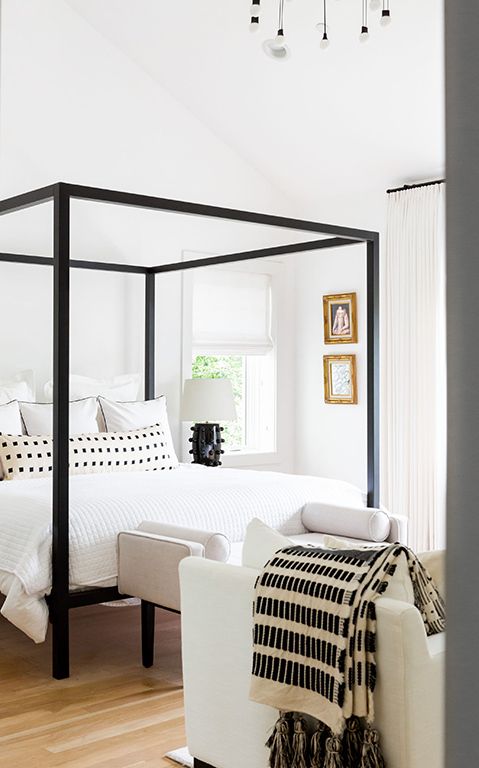
Tip #1: Don’t Put It Down; Put It Away
I think of clutter simply as delayed action or decision-making. If you have a pile of clean laundry on a chair in your bedroom, it just means you haven’t yet folded it or put it away. If you have a massive stack of dust-covered books on the floor, it just means you forgot to put them back on the bookshelf in the living room. Start noticing when you walk into your home if you dump things on any available surface. Do you empty your bag or pockets? Do you toss and run? Awareness of your current habits is always the first step.
When you enter your bedroom today, pay attention. If you have something in your hands, think twice before you put it down. Practice putting every item you bring into your bedroom back in its designated home instead of dumping or dropping it on any convenient surface. This may sound like a stretch, but once you start getting the hang of this habit, it can feel like a moving meditation. Treating your belongings and your space with respect feels good, and waking up to a space that feels curated and cared for is dreamy.

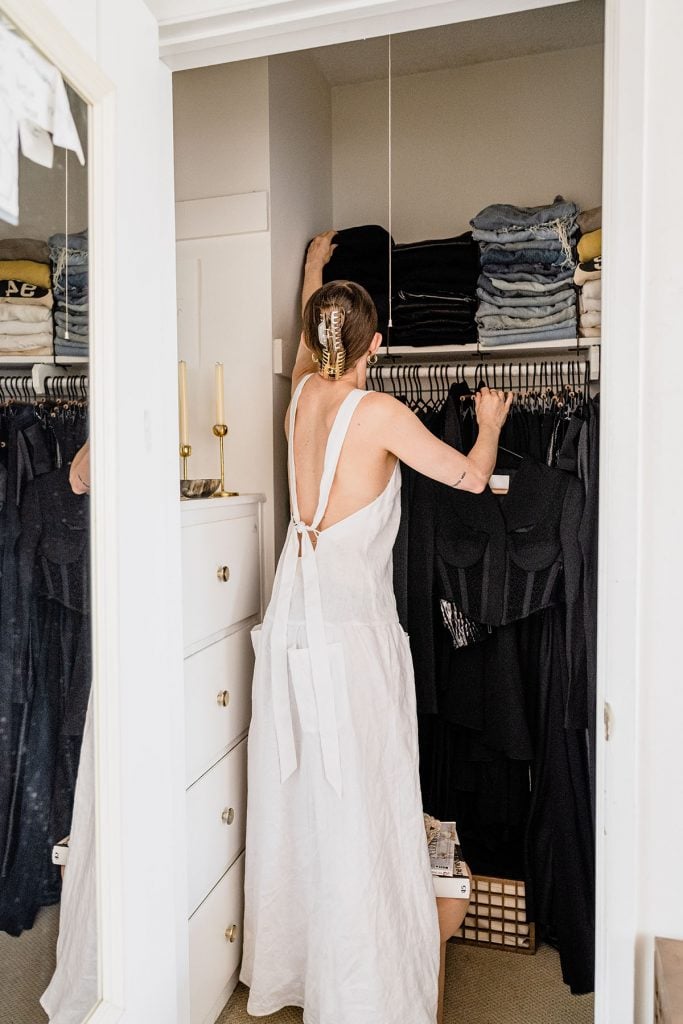
Tip #2: Put Your Clothes Away
Want to know a secret from the inside? Most people don’t put their clothing away at the end of the day. Putting your clothes away takes about two minutes or less, and I promise it is well worth the effort. This little tidying effort each night will have a massive compound effect. Either you’ll be facing massive piles of clothing when you wake up, or you’ll have a clean and comforting space. Which would you prefer?
Tonight, when you get ready to go to bed, decide which clothes are dirty and which can be put away. I know that many of you have concocted a new category composed of “half-clean, half-dirty clothes” that you’re not sure what to do with. Warning: This kind of gray-area thinking will get you nowhere fast. If an item is clean enough for you to wear again, it’s clean. If it’s visibly dirty or soiled, let’s call it dirty! Deal?
Toss the dirty items into your laundry bin; hang or fold the ones that can be worn again and return them to your dresser or closet. If you have a watch or jewelry or other accessories, make sure to put them back in their designated homes. This seems fairly simple and obvious, but I promise that the payoff will be profound.

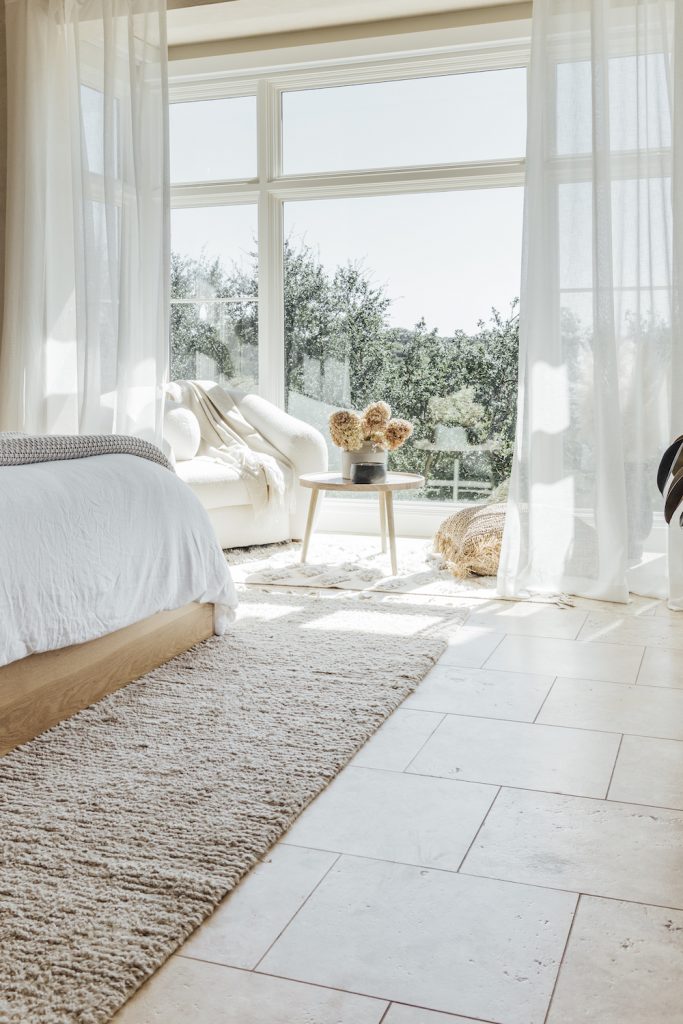
Tip #3: Relocate and Reset
Bedrooms do tend to be a magnet for clutter, and it’s not uncommon for bills or mail, magazines, coffee cups, and breakfast dishes to accumulate. Take a few minutes during your day, or before you turn in for bed, to relocate the random items and reset the space to its former glory. Remember the rules and guidelines you created and stick with them. What is your bedroom for? How do you want it to feel? I’m guessing dirty dishes and work papers don’t create the mood you’re going for.
Practice the five-minute relocate shuffle. Grab a bin, box, or basket and load it up with anything that landed in your bedroom and needs to see its way out. Take a few minutes to return bills and mail to your home “office,” dirty dishes to the kitchen sink, etc. This is like a quick reset for your bedroom, and a few minutes a day are all that’s required to prevent an avalanche and a weekend of cleaning and tidying. Do it for your future self!

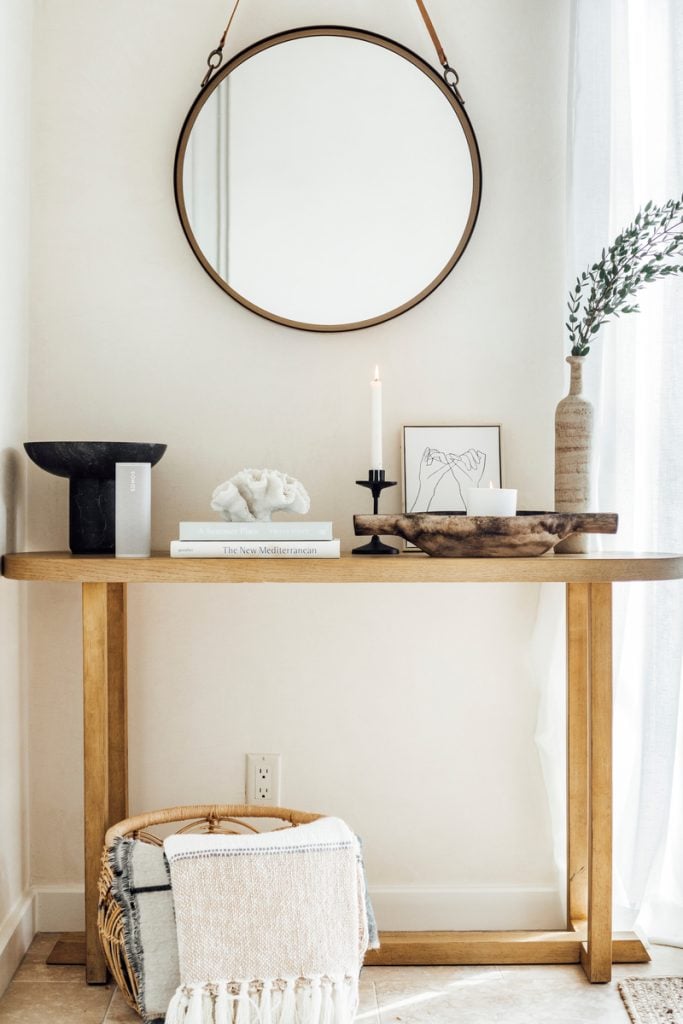
Tip #4: Create Clear Boundaries for Other People’s Stuff
Do you have a partner or spouse, kids or furry friends, or an Italian lover who visits every third Thursday? If other people are frequently dumping stuff in your bedroom, it’s best to create clear and consistent guidelines and rules.
I know this is the part where you want me to tell you how to get other people to change. Believe me, as a control enthusiast myself, I would love nothing more than to provide you with that secret formula. But the truth is that other people generally do what they want . . . even if you ask politely. Even if you remind them. Even if you threaten them or pout or get mad.
The good news? You always get to decide how you want to think, feel, act, and react in any situation, so that’s what we will deal with here.
Create a plan for how you will handle it when other people leave stuff in your bedroom. Write down exactly how you want to react and what actions you want to take. It’s important to think this through from a calm place in advance. Make sure to communicate it in a clear, respectful, and nonthreatening way to the others in your life. Use “if/then” statements. For example, you could say to your kids, “If you leave your belongings in my bedroom, then I will always put them in a pile on your bed because they don’t belong in my space.” Make sure whatever you decide feels good to you and is fueled by a positive emotion—i.e., “I’m excited to create a space that feels good” as opposed to “Anyone who touches my masterpiece is going DOWN!”

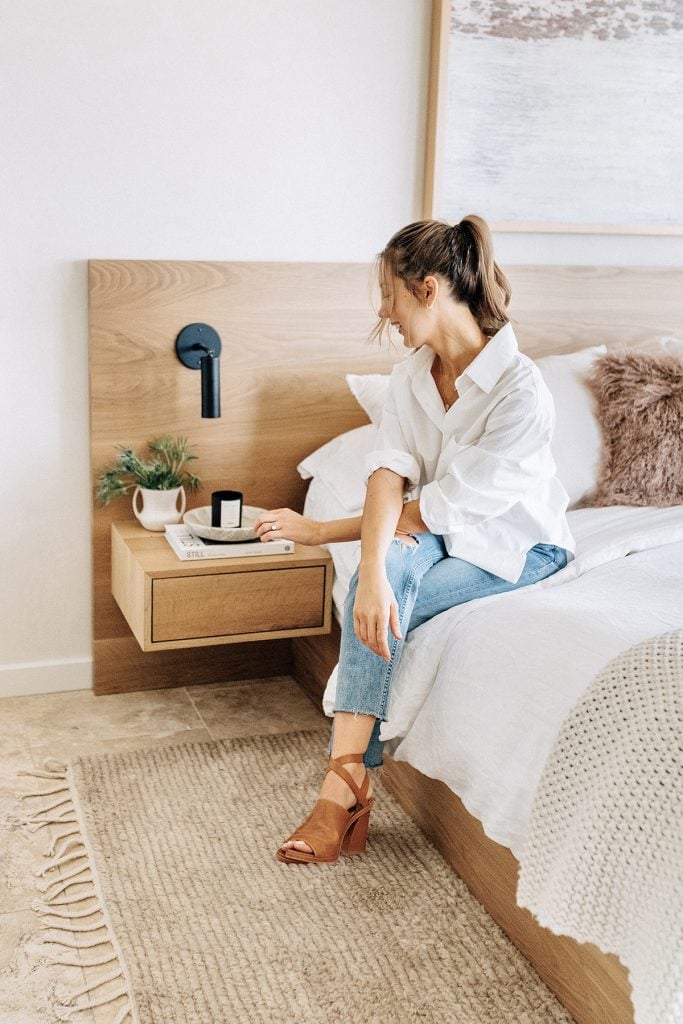
5 Things to Banish From the Bedroom
- Excess Furniture: The bed already takes up most of your prime real estate. If you have random side tables, end tables, stools, or benches, considering relocating them or donating them. Give your bedroom room to breathe, unless you have a huge bedroom and have created some type of suite.
- Luggage: Unpack immediately when you come home from a trip. Put your things away and then put away your suitcase (in its designated home, of course). Please.
- Dirty Dishes: One question. Why? Slow down and take a minute to bring your dirty dishes and neglected coffee mugs back to the kitchen. You can earn bonus points by immediately washing them and putting them away.
- Trash: I’m saying it because it’s more common than you might think. Trash should go in the trash. Not on your nightstand, not under your bed, not on top of your dresser. Not on your bedroom floor! I think we’re on the same page here. Throw your trash away. Do it now. Like, right now.
- Technology: Ultimately, no matter what else you decide to do, your bedroom needs to be a place where you can rest. Going to bed with a buzz of computers or phones does not a good night’s sleep make. Relocate your computers, phones, tablets, and anything else that prevents you from going to bed and staying asleep.
For more tips and tricks on designing an intentional space, purchase Shira’s stunning book, Minimalista.


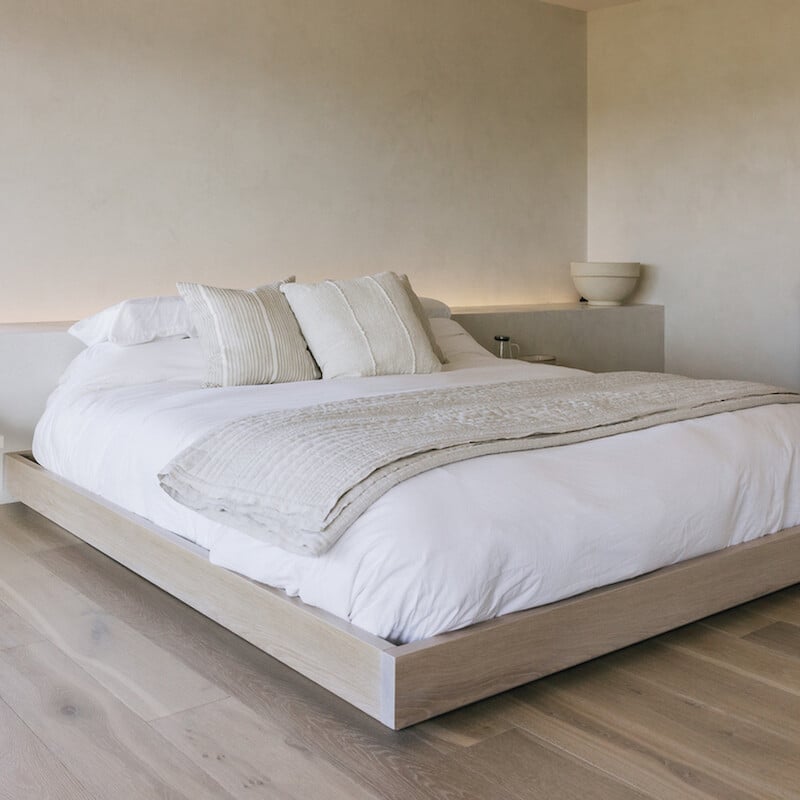
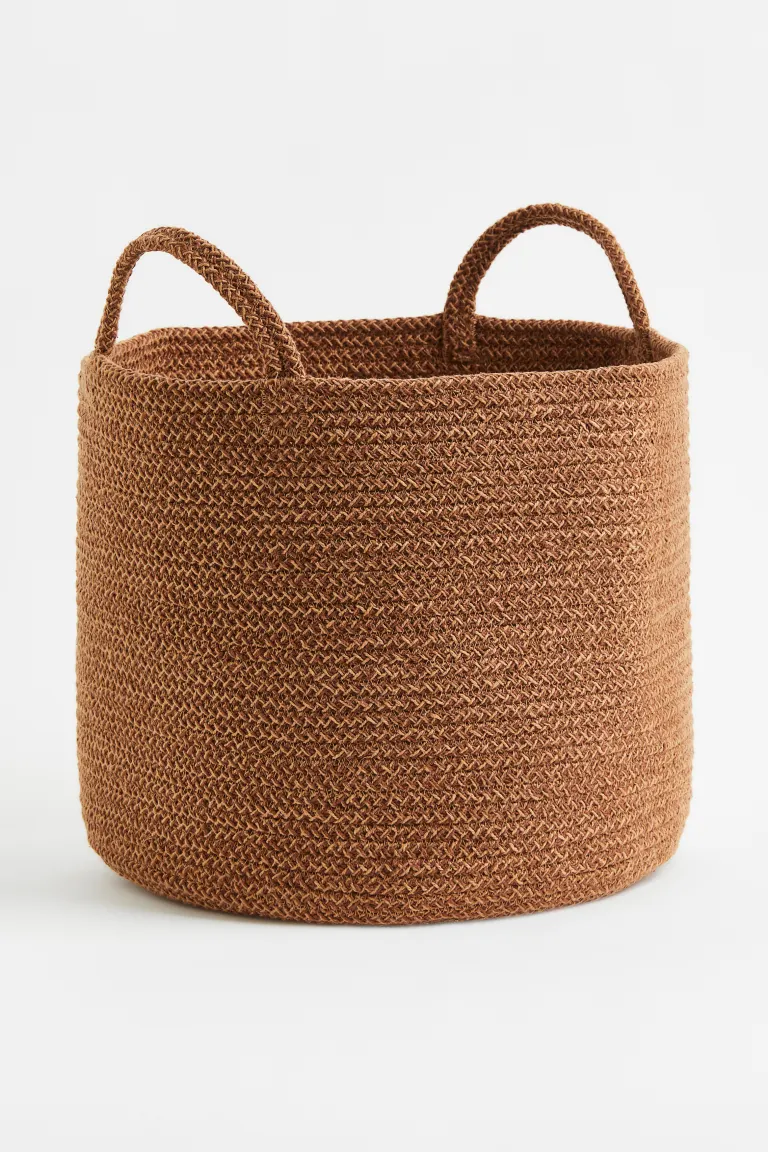
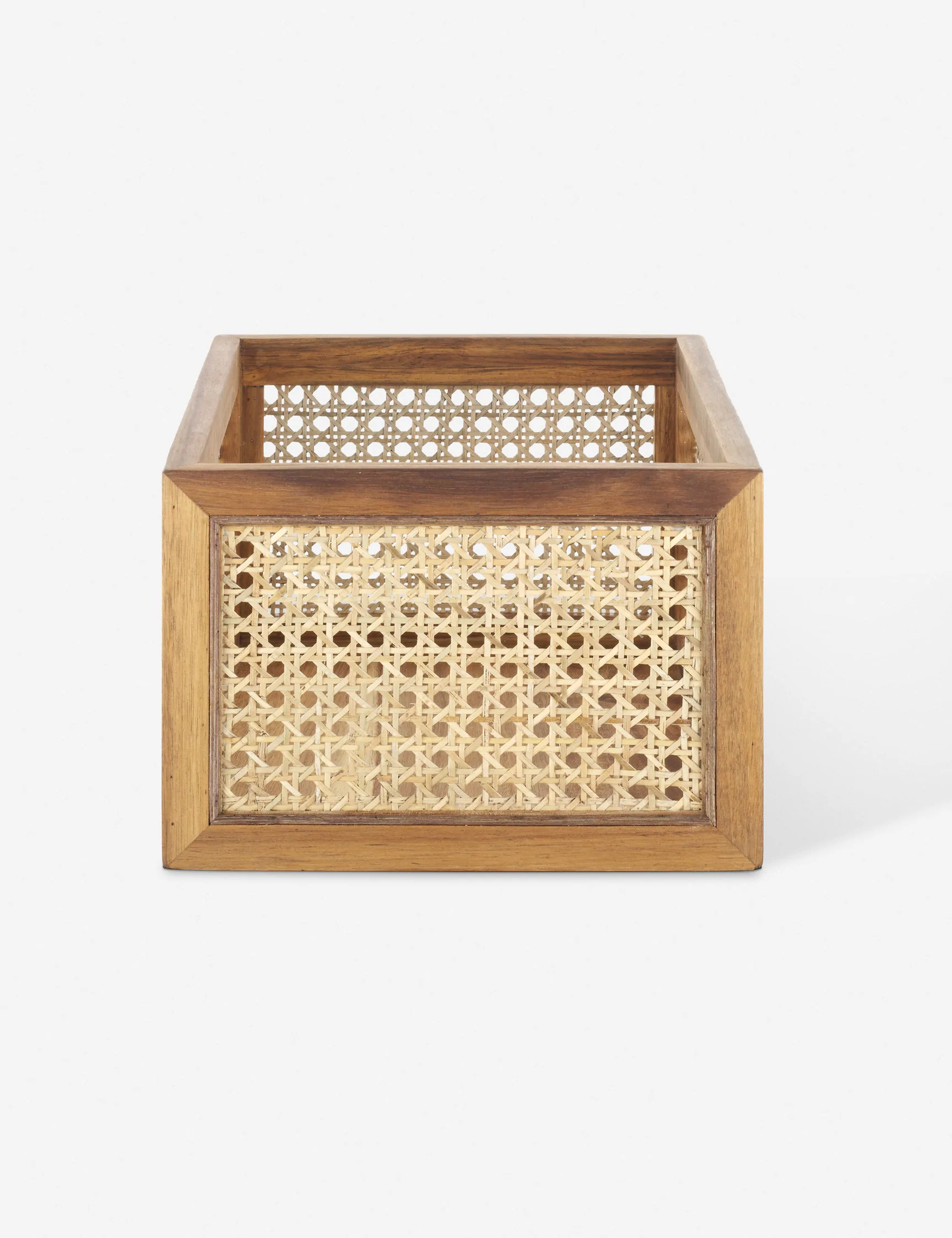
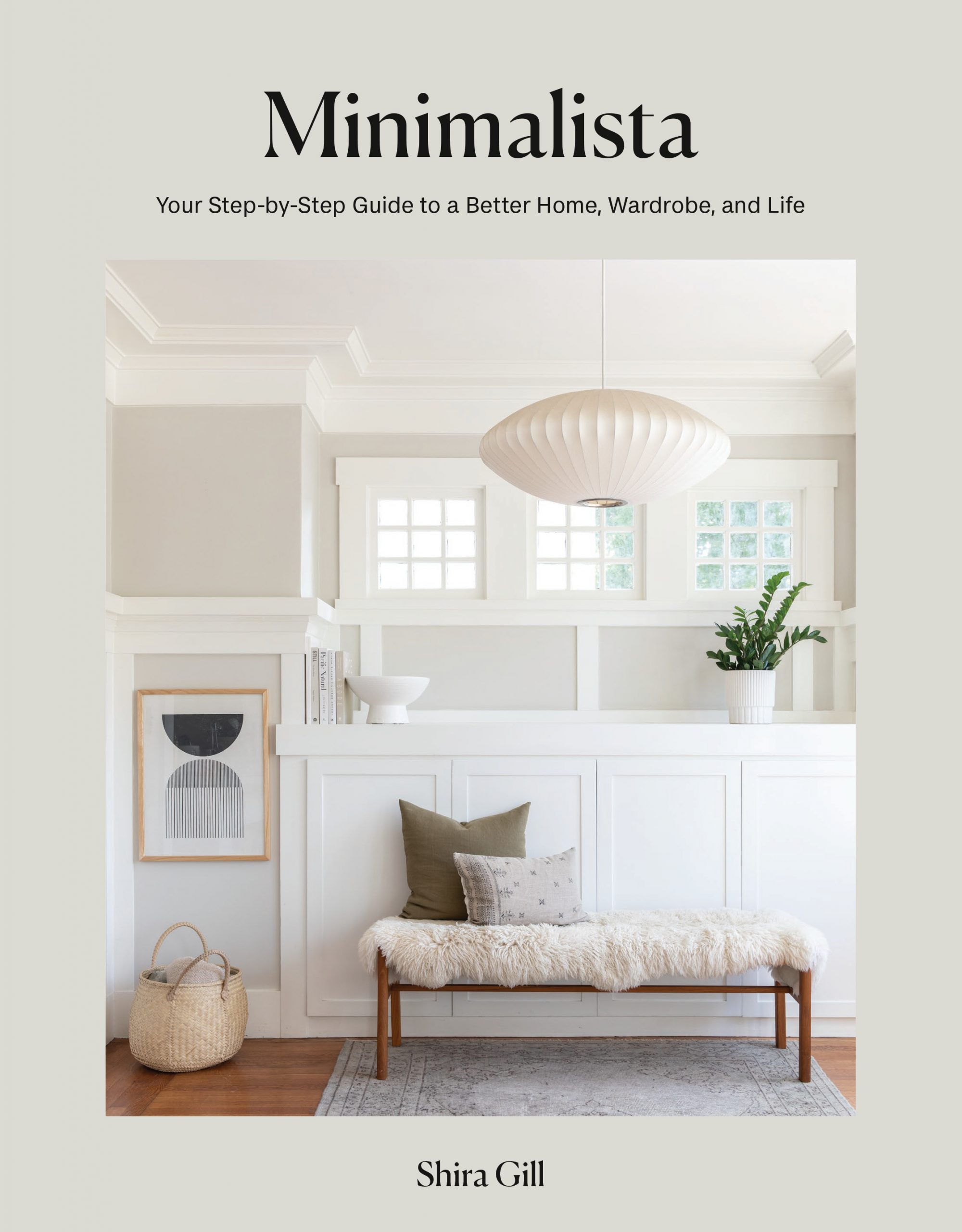




Years ago, I came across this “recipe for contentment”. It’s easy to live by and speaks to Shira Gill’s message. And my sons (mostly) follow it, too!
If you take it out, put it back.
If you open it, close it.
If you throw it down, pick it up.
It you take it off, hang it up.
Hello,
it´s a nice introduction to the new book by Shira Gill.
Makes me want to read it.
Eva